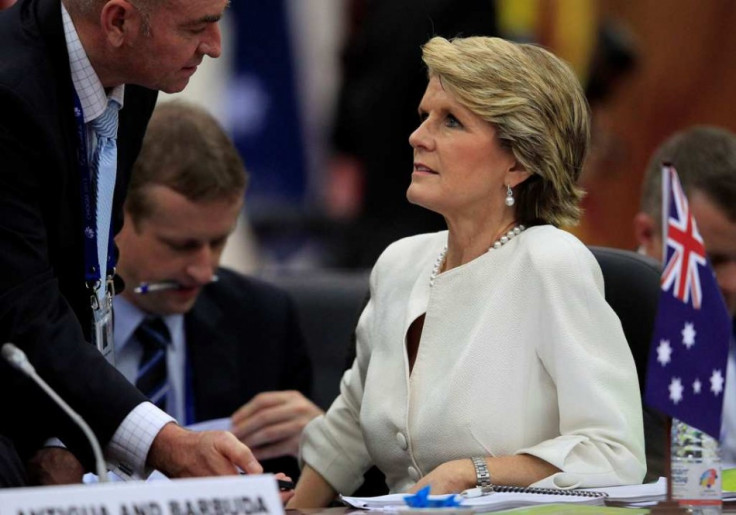UN Lima meet: Australia wants top climate polluters to put most efforts in emissions reductions

Australia, which recently repealed its carbon tax and may drop its renewable energy targets, has demanded that nations with the biggest greenhouse gas emissions should do the most to fight climate change.
The list of top emitters is headed by China, followed by the US, India, Russia and Japan.
Else, the efforts of other countries will be of no use, said Australia's foreign minister Julie Bishop on Monday at the climate talks in Lima.
Dismissing the differentiation of developed or developing world, as also per capita emissions, she trained guns on China, reports AFP.
"What has China announced? China has announced business as usual to 2030 and then they'll think about what their reductions will be at a time when their population will slow and their development will slow in any event."
China, like India, has sought the common but differentiated responsibilities measure to address the situation. Recently, its climate negotiator had said it would demand that developed nations do more in cutting emissions.
While Australia's total emissions are 1.5% of the total figure, its per capita emissions are very high at 16.9 metric tons as against China's 6.2, India's 1.7 or a 17 for the US and Saudi Arabia.
Australia repeals carbon tax
Australia is one country that has perhaps reversed the progress on emissions reduction.
With the repeal of its carbon tax, carbon emissions and electricity demand in Australia have risen in the two months against a six-year long trend of decline, said energy consultancy Pitt & Sherry.
Emissions are expected to continue to grow unless new policies were introduced, reported Scientific American.
A drop in renewables was replaced by more generation from black and brown coal power stations, placing Australia as the champion of coal.
A government-commissioned report recently recommended Australia to effectively end its Renewable Energy Target, a scheme designed to ensure that 20% of its electricity would be generated from renewable sources by 2020.
Australia could now fail to meet its target of cutting emissions to 5% below 2000 levels by 2020. Environmentalists have been seeking a 15% cut.
Ironically, an appeal has been issued to Minerals Council of Australia (MCA) by the Australian Religious Response to Climate Change (ARRCC) that sees "a moral imperative to act urgently to address climate change, including transitioning rapidly away from fossil fuels and into renewable sources of energy."
It points to research by the Carbon Tracker Initiative and the International Energy Agency noting that humanity has a constrained "carbon budget" to say "the science is clear, we must leave around 80% of fossil fuel reserves in the ground if we are to avoid even the internationally agreed limit of two degrees of global warming."
India promises green laws
Meanwhile, India's environment minister Prakash Javadekar said at Lima that his government was planning to bring out climate legislations in the next Parliament session to monitor pollution, include climate adaptation funds, anti-pollution norms for industries and transport sector and increase forest cover.
He was critical of the shortfall in the green climate fund while acknowledging the need for INDCs in tackling climate change.
© Copyright IBTimes 2025. All rights reserved.





















